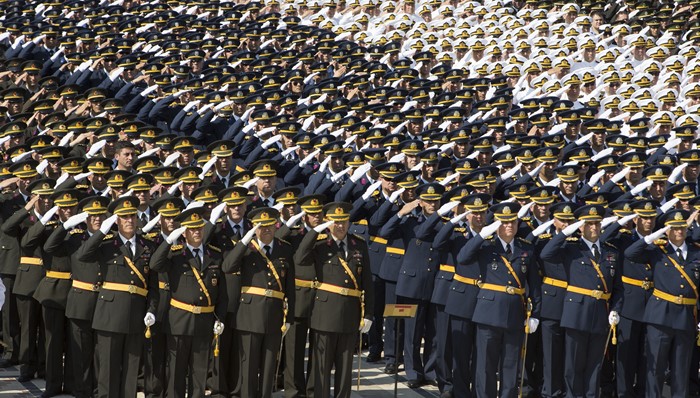An İzmir court on Monday handed down aggravated life sentences to 104 of 137 suspects for their alleged role in a failed coup attempt on July 15, 2016, the state-run Anadolu news agency reported.
On Friday an Istanbul court sentenced 57 air force cadets to life and six others to aggravated life for their alleged role in the failed coup attempt.
In January, another İstanbul court ruled for aggravated life sentences for 23 military members and life sentences for 35 military personnel for attempting to change the constitutional order by means of the coup attempt in July 2016.
Turkey survived a military coup attempt on July 15, 2016 that killed 249 people and wounded more than a thousand others. Immediately after the putsch, the Justice and Development Party (AKP) government along with President Recep Tayyip Erdoğan pinned the blame on the Gülen movement.
Fethullah Gülen, who inspired the movement, strongly denied having any role in the failed coup and called for an international investigation into it, but President Erdoğan — calling the coup attempt “a gift from God” — and the government initiated a widespread purge aimed at cleansing sympathizers of the movement from within state institutions, dehumanizing its popular figures and putting them in custody.
The ruling AKP government dismissed 24,977 military members including 150 generals, 4,630 officers, 2,167 noncommissioned officers, 1,210 specialized sergeants, 411 civil servants and workers, and 16,409 cadets following the failed coup over alleged links to the Gülen movement.
In February of last year Henri Barkey, director of the Middle East Program at the Washington-based Wilson Center, said that many generals purged by the Turkish government are pro-NATO and pro-American, saying this could create a shift in Turkey-NATO relations.
The head of Germany’s Federal Intelligence Service (BND), Bruno Kahl, last year said Turkey could not convince them that US-based Turkish-Islamic scholar Gülen was behind the failed coup in July.
Similarly, Devin Nunes, chairman of United States House Permanent Select Committee on Intelligence, said he had not seen any evidence showing Gülen’s involvement in the putsch in Turkey.
In addition, a report prepared by the EU Intelligence Analysis Centre (IntCen) revealed that the coup attempt was staged by a range of Erdoğan’s opponents due to fears of an impending purge.
